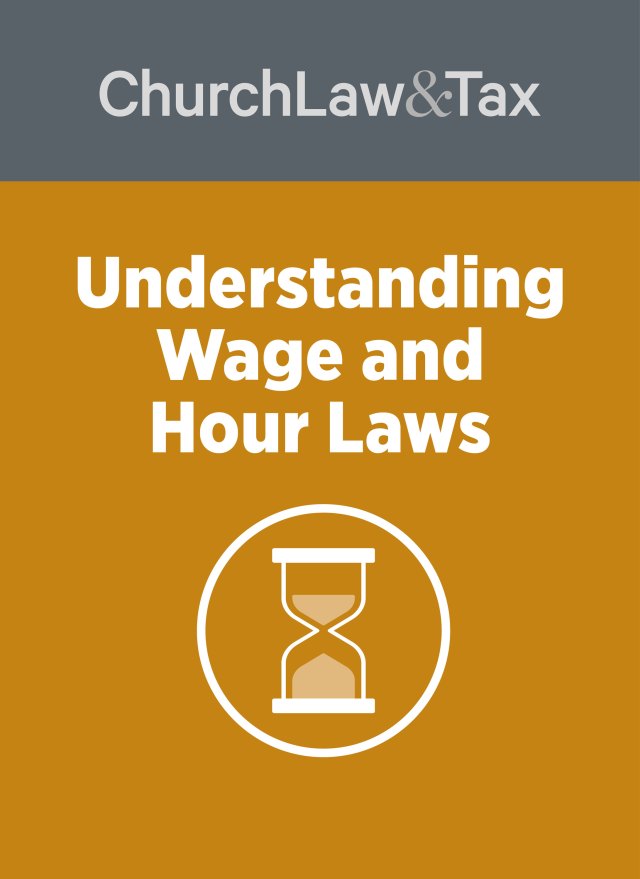• Must a church pay overtime compensation to employees of a religious school? Yes, concluded a federal district court in Virginia. Here are the facts. Shenandoah Baptist Church (an unincorporated church located in Roanoke, Virginia) established a preschool and an elementary and secondary school in order to carry out its education ministry (which it described as its “total ministry”). Both the church and the government agreed that between 1976 and 1982 the church paid 91 non-teaching staff (i.e., custodians, bus drivers, bookkeepers, secretaries) hourly wages below the “minimum wage” prescribed by federal law. In deciding whether or not the federal minimum wage law applied to church school employees, the court referred to a test announced by the United States Supreme Court in 1979—federal legislation generally cannot be applied to churches if it would impose a “significant risk” of infringing upon the church’s constitutional guaranty of religious freedom unless Congress “clearly and affirmatively intended” such a result. The court conceded that application of the minimum wage law to church school employees might “pose serious constitutional questions,” but it concluded that Congress had “clearly and affirmatively intended” that such employees be covered and accordingly that such coverage was permissible. It referred to a 1966 amendment in the minimum wage law that specifically included the non-teaching staff of private schools within the coverage of the law. The court further observed that the church’s constitutional guaranty of religious freedom would not have been violated even if Congress had not clearly and affirmatively demonstrated its intention to include non-teaching staff of private schools within the coverage of the minimum wage law, since the government’s interest in “insuring that workers are paid a wage sufficient to provide for themselves and their families” was a compelling interest that “outweighed” the church’s interests. The court noted that the United States Supreme Court ruled in 1982 that Amish employers could be compelled to pay social security (FICA) taxes on their employees’ behalf even though such a practice would violate the employers’ religious beliefs. The Supreme Court conceded that paying the FICA taxes would “interfere” with the employers’ religious beliefs, but it concluded that the government’s interest in “assuring mandatory and continuous participation in and contribution to the social security system is very high” and in fact outweighed the employers’ interests. Similarly, the application of federal minimum wage law to the non-teaching staff of a church school would admittedly interfere with the church’s religious freedom, but “the government has a great interest in enforcing minimum wage laws uniformly” that outweighs the church’s interests. The court also ruled that the church had violated the federal “equal pay” law that requires employers to pay employees equal pay for equal work, regardless of gender. The church was ordered to pay $16,818 to the Department of Labor (to be distributed to employees who were not paid minimum wage) and $177,680 to the Equal Employment Opportunity Commission (to be distributed to employees whose pay violated the equal pay law). The court conceded that the church employees were free to return to the church any portion of their award that they chose, so long as their decision was voluntary. Further, the church was free to encourage employees to return their awards. But, employees not electing to return their awards could not be penalized by the church. The court’s decision is significant for its recognition that church school employees (other than teachers and administrators) are subject to federal minimum wage law despite a church’s claim that such coverage violates its constitutional right of religious freedom. The ruling will be of even greater impact if congressional efforts to increase the minimum wage succeed. Note, however, that the decision is restricted to the coverage of non-teaching staff at church schools. It says nothing regarding the coverage of church employees not associated with a private school. Further developments in this important case will be tracked in future issues of this newsletter. United States Department of Labor v. Shenandoah Baptist Church, 707 F. Supp. 1450 (W.D. Va. 1989).
© Copyright 1989, 1998 by Church Law & Tax Report. All rights reserved. This publication is designed to provide accurate and authoritative information in regard to the subject matter covered. It is provided with the understanding that the publisher is not engaged in rendering legal, accounting, or other professional service. If legal advice or other expert assistance is required, the services of a competent professional person should be sought. Church Law & Tax Report, PO Box 1098, Matthews, NC 28106. Reference Code: m43 m65 c0589




